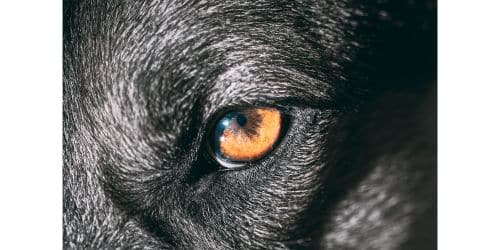Have you ever watched your furry friend snoozing peacefully, only to be startled by sudden barking or whimpering? It’s a common sight that leaves many dog owners puzzled. Why do dogs bark in their sleep? In this blog post, we will delve into the intriguing world of canine sleep behavior and explore the reasons behind those unexpected vocalizations. So, grab a cup of coffee and join us on this journey to unravel the mystery!
Why do Dogs Bark in their Sleep?
Dogs bark in their sleep for various reasons, and understanding these reasons can help shed light on this intriguing behavior. Here are some of the main factors that contribute to dogs barking during sleep:
#1. The Sleep-Wake Cycle of Dogs
Understanding the sleep patterns of dogs is crucial to comprehending why they bark during their sleep. Just like humans, dogs undergo different stages of sleep, including REM (Rapid Eye Movement) sleep, which is associated with dreaming. During REM sleep, dogs exhibit various behaviors, including twitching, paw movements, and vocalizations. It is during this stage that those sleep sounds occur.
#2. Communication in Canine Dreams
Just like humans, dogs use barking as a means of communication. While awake, they bark to express various emotions and needs. During sleep, this communication instinct may still be active, leading to vocalizations in dreams. Dogs may be reliving past experiences, engaging in imaginary play, or even communicating with other dream characters through barking.
#3. Dream Content and Emotional Triggers
Dogs have vivid imaginations, and their dreams often reflect their daily experiences and interactions. For example, a dog who loves to play fetch might dream about chasing a ball in a park, while a dog who enjoys socializing with other dogs may dream about running and playing with their furry friends. These dream scenarios can evoke strong emotions, leading to barking or other vocalizations as the dog acts out their dream in their sleep. It’s fascinating to think about how their dream content can shape their sleep behavior.
#3. Breed-Specific Traits and Sleep Behavior
Different dog breeds have varying sleep behaviors, and this can influence their tendency to bark during sleep. For example, herding breeds like Border Collies or German Shepherds are known for their alertness and propensity to vocalize. This heightened vigilance may carry over into their dreams, causing them to bark more frequently compared to other breeds.
#4. Nightmares and Fear-Induced Barking
Just like humans, dogs can experience nightmares or dream sequences that evoke fear or anxiety. These unsettling dreams can trigger barking or whimpering as a response to perceived threats or distressing situations. It’s essential to provide a comforting environment for your dog to help alleviate any potential anxiety or fear that may contribute to these nightmares.
#5. Age and Developmental Factors
The age and developmental stage of a dog can also influence their sleep behavior. Puppies, in particular, tend to have more active dream periods and may bark more frequently during sleep as they process new experiences and sensations. As dogs mature, their sleep patterns may become more stable, and sleep barking may lessen.
#6. Health Conditions and Sleep Disturbances
It’s important to note that excessive or disruptive sleep barking can sometimes be a sign of an underlying health issue or sleep disturbance. Dogs experiencing pain or discomfort due to conditions like arthritis, gastrointestinal problems, or urinary tract issues may bark more frequently during sleep.
Similarly, certain neurological disorders can disrupt the normal sleep-wake cycle and cause abnormal vocalizations during sleep. If your dog’s sleep barking is accompanied by other symptoms like restlessness, changes in appetite, or lethargy, it’s essential to consult with a veterinarian for a thorough examination and appropriate diagnosis.
#7. Environmental Triggers and Sleep Barking
External factors in a dog’s sleep environment can also play a role in sleep barking. Noises from outside, such as sirens, car alarms, or other animals, may filter into their dreams and elicit barking responses. Similarly, changes in the sleeping environment, such as a new bed or a different location, can temporarily increase sleep barking until the dog adjusts to the new surroundings.
While occasional sleep barking is generally considered normal, excessive or disruptive sleep barking can be a concern. If you have concerns about your dog’s sleep barking or if it is accompanied by other behavioral changes or distress, it’s recommended to consult with a veterinarian or a professional dog behaviorist for further evaluation and guidance.
Managing Sleep Barking
While occasional sleep barking is usually harmless, excessive or disruptive sleep barking can be challenging for both dogs and their owners. If you find yourself losing sleep or feeling concerned about your dog’s sleep barking, there are a few strategies you can try to manage the behavior. Establishing a consistent bedtime routine can help signal to your dog that it’s time to wind down and sleep.
Ensure that your dog receives enough physical and mental exercise during the day to promote better sleep at night. Creating a comfortable sleep environment with a cozy bed or crate and minimizing external noise disturbances can also contribute to more restful sleep for your furry friend. If the sleep barking persists or worsens despite your efforts, seeking guidance from a professional dog trainer or veterinary behaviorist can provide you with additional strategies to address the behavior effectively.
Is it a sign of a nightmare or anxiety?
Yes, sleep barking in dogs might be a sign of a nightmare or anxiety. Just like humans, dogs can experience dreams that evoke fear or anxiety during their sleep. As a response to perceived threats or upsetting scenarios in their dreams, these dogs may bark or whimper.
If your dog’s sleep barking is accompanied by other indicators of concern, such as restlessness, pacing, panting, or behavioral abnormalities, it may indicate that the barking is anxiety-related. Dogs with anxiety disorders may be more prone to having anxiety-related nightmares and, as a result, may bark in their sleep.
It’s important to observe your dog’s overall behavior and look for any patterns or signs of anxiety or distress during wakeful periods as well. If you suspect that your dog is experiencing anxiety or having frequent nightmares that lead to disruptive sleep barking, it may be beneficial to consult with a veterinarian or a professional dog behaviorist. They can help evaluate your dog’s specific situation and provide guidance on managing anxiety or addressing any underlying issues that may be contributing to sleep barking.
How can I stop my dog from barking in their sleep?
Here are some techniques you might try to moderate or reduce your dog’s sleep barking:
- Create a Calm and Comfortable Sleep Environment: Provide your dog with a calm and comfortable sleeping environment. Assure that they have a comfortable bed or crate in a peaceful section of the house where they can sleep without being disturbed.
- Establish a Bedtime Routine: Create a consistent nighttime ritual to communicate to your dog that it is time to relax and sleep. Before sleep, engage in relaxing activities such as a short stroll or moderate games, followed by quiet time.
- Regular Exercise and Mental Stimulation: Make sure your dog has adequate physical and mental stimulation throughout the day. A fatigued dog is more likely to sleep soundly. Engage in activities such as walks, play sessions, puzzle toys, or training exercises to help tire them out both physically and mentally.
- Reduce Anxiety Triggers: If anxiety is a contributing cause to your dog’s sleep barking, identify and treat any anxiety triggers. This could include loud noises, separation anxiety, or routine adjustments. Implement anxiety-reduction measures such as gradual desensitization, counterconditioning, or the use of relaxing products such as pheromone diffusers or anxiety wraps.
- Consult a Professional: If your dog’s sleep barking persists or becomes a problem, get advice from a professional dog trainer or veterinary behaviorist. They may examine your dog’s circumstances, offer specialized guidance, and create a behavior modification strategy to properly manage sleep barking.
- Medical Evaluation: If your dog’s sleep barking is accompanied by other troubling symptoms or changes in behavior, you should speak with a veterinarian. They can perform a comprehensive examination, rule out any underlying medical disorders that may be causing discomfort or sleep disturbances, and, if necessary, offer suitable therapy.
Should I wake my dog up if he is barking in his sleep?
If your dogs bark in their sleep, it is best to do nothing. It can be quite confusing and disconcerting for your dog to be awakened in the middle of a dream, just like it is for people. Even if your dog’s dream appears to be a nightmare, it’s probably best to let them work through it on their own.
Why do dogs cry and bark at night?
Asserting boundaries & defense. One of the main reasons why street dogs bark at night is to assert authority and defend themselves. Street dogs mark and maintain their boundaries against other dogs by barking, whimpering, or howling.
What do dogs dream about when they whimper?
Because dogs are so similar to humans, they are prone to have nightmares as well. When dogs sleep, they not only dream of pleasurable memories, but they can also recall painful ones. Dogs can also dream about their concerns, which may lead them to howl or yelp while sleeping. They may also twitch and gently whimper.
What do dogs dream about when they twitch?
Puppies and older dogs twitch more than other dogs while sleeping. Psychologists believe that dogs dream about their daily lives. Even if you have a nightmare, it is advisable not to wake a dog.
How do I know if my dog is having a nightmare?
Nightmares, on the other hand, may cause your dog to snarl when sleeping, as well as quiver their paws and eyes. They may also growl, whine, whimper, or bark an alert. If the nightmare is very startling, your dog may jerk awake, much as you or I may jerk awake from a jarring nightmare.
Can dogs see spirits?
Even though there is no scientific evidence that dogs can see ghosts, so much of animal behavior is unknown that the possibility of a dog feeling something a person can is not ruled out.
Conclusion
Sleep barking may remain a fascinating enigma, but we may now better understand why dogs indulge in this behavior thanks to the insights we’ve gained. Sleep barking is a natural aspect of a dog’s sleep-wake cycle, from adventure-filled dreams to innate communication. We may create a caring sleep environment for our dogs as responsible dog owners, monitor any changes in sleep behavior, and seek professional help if necessary.
So, the next time your dogs bark in their sleep, remember that they are exploring their dream world, which represents their distinct personalities and experiences. Accept the riddle and let them sleep peacefully with our love and care.
To summarize, the occurrence of dogs barking while sleeping is an intriguing element of canine behavior. We can begin to uncover the riddle behind this behavior by analyzing their sleep-wake cycle, communication instincts, dream content, breed-specific features, nightmares, age and developmental considerations, health issues, environmental triggers, and management measures.
While it might be perplexing at times, sleep barking in dogs is a natural condition that can be addressed with patience, understanding, and correct care. So, the next time your furry companion barks in their sleep, remember that they are simply exploring their dream world—a world that reflects their unique personalities and experiences. Accept the riddle and allow them to sleep peacefully with your love and care. Sweet dreams to you and your four-legged companion
Related Articles
- Can Dogs Get Tired of Barking?
- The 10 Easiest Dogs to Take Care of
- Signs Your Deceased Pet Is Visiting You: Understanding Pet Loss and Coping
- Dog Shaking and Vomiting: Causes, Treatment, and When to Worry
- DOG PULLED MUSCLE IN BACK LEG SYMPTOMS AND Diagnosis
- Why Do Dogs Bark in Their Sleep?
- Is Pine Safe for Dogs?






